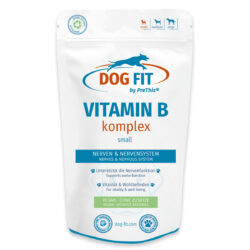Polyradiculitis in dogs

Polyradiculitis in Dogs – Causes & Symptoms
Polyradiculitis is a rare, inflammatory disease of the peripheral nervous system in dogs. As a special form of polymyositis, an autoimmune reaction against the body’s own muscle tissue, it primarily affects the nerve roots outside the spinal cord. The disease usually occurs acutely and can be challenging for both the animal and its owner.
Causes of Polyradiculitis
The exact triggers of this disease have not yet been fully clarified. The primary cause is a misguided immune reaction, in which the immune system mistakenly identifies the peripheral nerve structures as foreign and attacks them. In some cases, genetic influences or possible infectious triggers are discussed.
Symptoms of Polyradiculitis
Initially, the disease can manifest itself through general weakness, refusal to eat, or altered movement behavior. As the disease progresses, many affected dogs exhibit:
- motor deficits
- unsteady gait and coordination disorders
- flaccid paralysis or muscle atrophy
- sensitivity to touch or pain reactions
Since these symptoms can also occur with other neurological diseases, a comprehensive veterinary evaluation is necessary. Modern imaging techniques and neurological tests help to make a reliable diagnosis.
Therapeutic Approaches and Supportive Measures
Veterinary treatment is tailored to the individual severity and progression of the disease. Anti-inflammatory measures are often used. Targeted support of the nervous system can also be beneficial – for example, through physiotherapy, controlled exercise, and a coordinated supply of micronutrients.
Regeneration and Nervous Resilience in Dogs
The peripheral nervous system is susceptible to disorders that can be triggered by age-related changes, inflammatory processes, or external influences. Especially in diseases such as polyradiculitis, stable nervous resilience is crucial for maintaining quality of life. Adapted exercise, targeted physiotherapy measures, and a needs-based diet play an important role. In consultation with your veterinarian, supplementing with specific micronutrients can be part of a holistic approach to best support your dog during its recovery phase.
